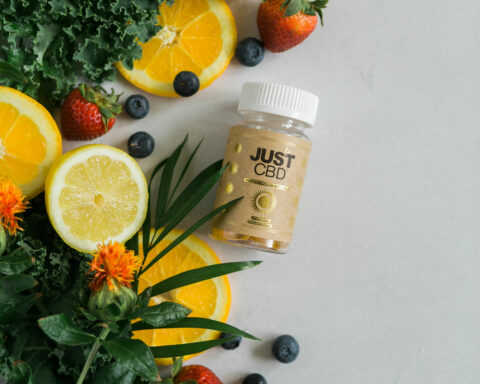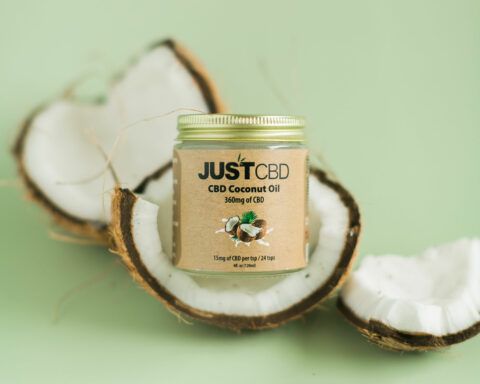Cannabidiol, or CBD, is a non-psychoactive chemical derived from cannabis. THC and CBD share the outer space of the cannabis plant. Although industrial hemp contains insufficient THC to cause intoxication, all kinds of cannabis, including hemp, were classed as Schedule 1 narcotics under the 1970 Federal Controlled Substances Act. The legislation classified cannabis as a substance with no known therapeutic use, a high risk of addiction, and abuse potential. In 2018, Congress passed the Farm Bill, which made hemp farming legal. This statute distinguished hemp from marijuana, describing the former as cannabis containing less than 0.30 percent THC by weight, while the latter contains more than the legal limit.
CBD Laws in Alabama
Although CBD is currently lawful at the federal level, each state has the right to define its legality and set of laws. Several states have failed to legalize any cannabis, including CBD, for whatever reason, although eleven states have fully legalized recreational marijuana. Additionally, state regulations on this subject are always changing, and therefore people have to be up to date.
Lenis’ Law
Bentley signed House Bill 61(Leni’s) on May 4, 2016. Leni’s Law is named after Leni Young of Alabama, who successfully used CBD to treat her seizures. The act expanded qualifying diseases to include certain severe conditions that cause seizures, making CBD more accessible. However, CBD remained extremely restricted, with GW Pharmaceuticals’ Epidiolex being the sole FDA-approved version.
Senate Bill 174 (Carly’s Law)
On April 1, 2014, former Alabama Governor Robert Bentley signed Carly’s Law, also known as Senate Bill 174. (10), under certain conditions. This restricted rule protected people who use CBD products for debilitating epilepsy and seizures. Patients who acquire a prescription from the University of Alabama–Birmingham can possess and use CBD products. However, the term “prescription” can be misleading because doctors can only prescribe medicinal marijuana in states where it is legal.
Senate Bill 225
SB 225 was signed by Governor Kay Ivey in June (13). Alabama pharmacists were able to resell CBD products thanks to this Law.
2016 Alabama Industrial Hemp Research Program Act
The Alabama Department of Agriculture and Industries (ADAI) was assigned to implement a license and inspection regime for industrial hemp production under this Law. It further stated that industrial hemp is derived from Cannabis sativa L., the same plant that produces marijuana. Following the approval of the 2018 Farm Bill, Alabama Attorney General Steve Marshall, a Republican, confirmed that CBD products sold by certified vendors and containing no more than 0.3% THC by weight are legal. According to Marshall, buyers should be cautious because Alabama has yet to create laws for the testing and labeling of CBD products.
Licensing Requirements
Applicants who want to grow, process, or handle hemp in Alabama must submit a $200 application fee to the Alabama Industrial Hemp Research Program and pay a $1,000 participation fee upon licensure.
Cultivation Requirements
Participants in the Alabama Industrial Hemp Research Program must regularly submit numerous reports to the ADAI. ADAI offenses include failing to file a report, providing misleading information, failing to pay fees, and producing hemp that tests higher than the permitted THC limit. Certain infractions can result in civil penalties of up to $500 and disciplinary sanctions such as the withdrawal of an application.
CBD Penalties
Suppose you are accused of possessing any amount for personal use, you may face the following charges and penalties:
- Up to one year in prison
- Class A misdemeanor
- ● Fines of up to $6,000
CBD possession can result in a permanent criminal record and costly consequences in the absence of an eligible medical condition. With the help of a criminal defense lawyer in Montgomery, it is critical to defending against these charges vigorously. It’s worth noting that having certain medical conditions or caring for someone who does can help you avoid being charged with CBD possession.
There are no restrictions on selling CBD products that contain less than 0.3% THC. Selling any cannabis product with more than the allowed level of THC is a felony punishable by 2- 20 years in jail and a fine of up to $30,000. Cannabis sales to minors can result in a 10-year to life term and a possible $60,000 fine.
Buying CBD Legally in Alabama
Consumers should check the product label for the amount of CBD per serving, net weight, manufacturer’s name, batch number or code, ingredient list, suggested usage, and CBD type. Additionally, be aware of items that utilize marketing words like “100% organic” or “pure CBD oil” without proof before purchasing CBD oil in Alabama.
Before buying CBD products, customers should research the brand. A reputable company displays extensive lab test results for its products on its website.
The potency and composition of CBD products are confirmed by third-party test reports. These results contain cannabinoid and terpene profiles, allowing customers to see the exact quantity of CBD in the product and compare it to the label.
Choosing CBD Products
Membership with hemp groups, such as the Alabama Hemp Growers Association, is an element to examine when determining a brand’s trustworthiness. Consumer evaluations and reports on CBD establishments in Alabama are also collected by the Better Business Bureau (BBB). Only legitimate establishments and businesses within a state are accredited by the BBB.
Reliable brands include major details in their labels and packages to help consumers identify the conducive CBD product for them. These details include; manufacturers’ names, storage specifications, active ingredients and percentages if possible, manufacturing and expiry date, net weight, full-spectrum, broad-spectrum or isolate, intended users, and prescription.
Conclusion
CBD purchasing is now legal in all 50 US states, courtesy of the 2018 Farm Bill. The main criterion for a CBD product’s legality is that its ingredients must have less than 0.30% THC on a dry weight basis. Consumers should keep in mind that CBD products are not panaceas, and therefore they should not be abused. Despite numerous studies linking CBD to various wellness advantages, the US FDA has only approved CBD for epilepsy patients.
- Eye Spy: Worldwide Eye Color Percentages - April 19, 2024
- Elevate Energy, Soothe Stress, And Peak Performance with The New UNBEETABREW Coffee Sensation - September 21, 2023
- Chef Bob’s Coffee: A Journey Fueled by Passion - July 29, 2023









